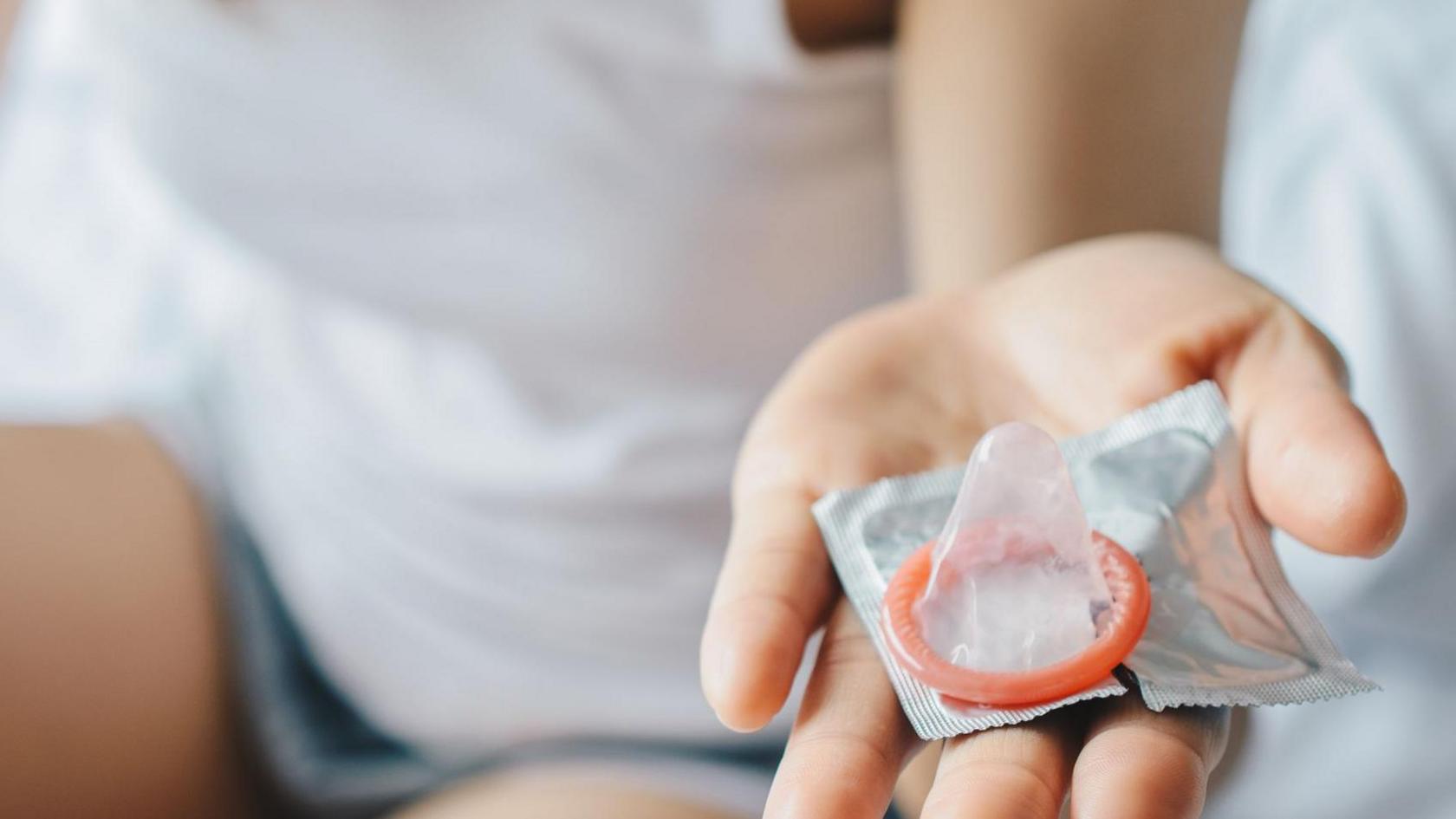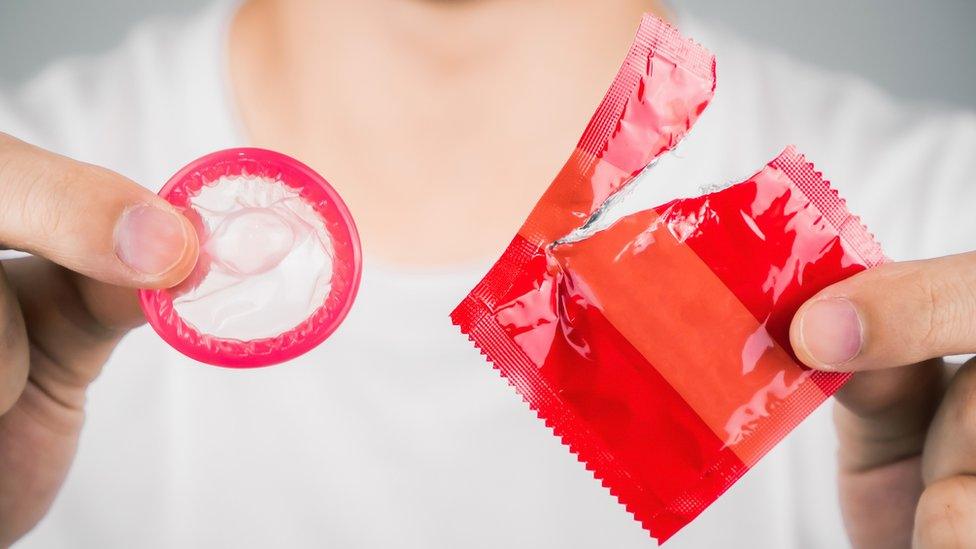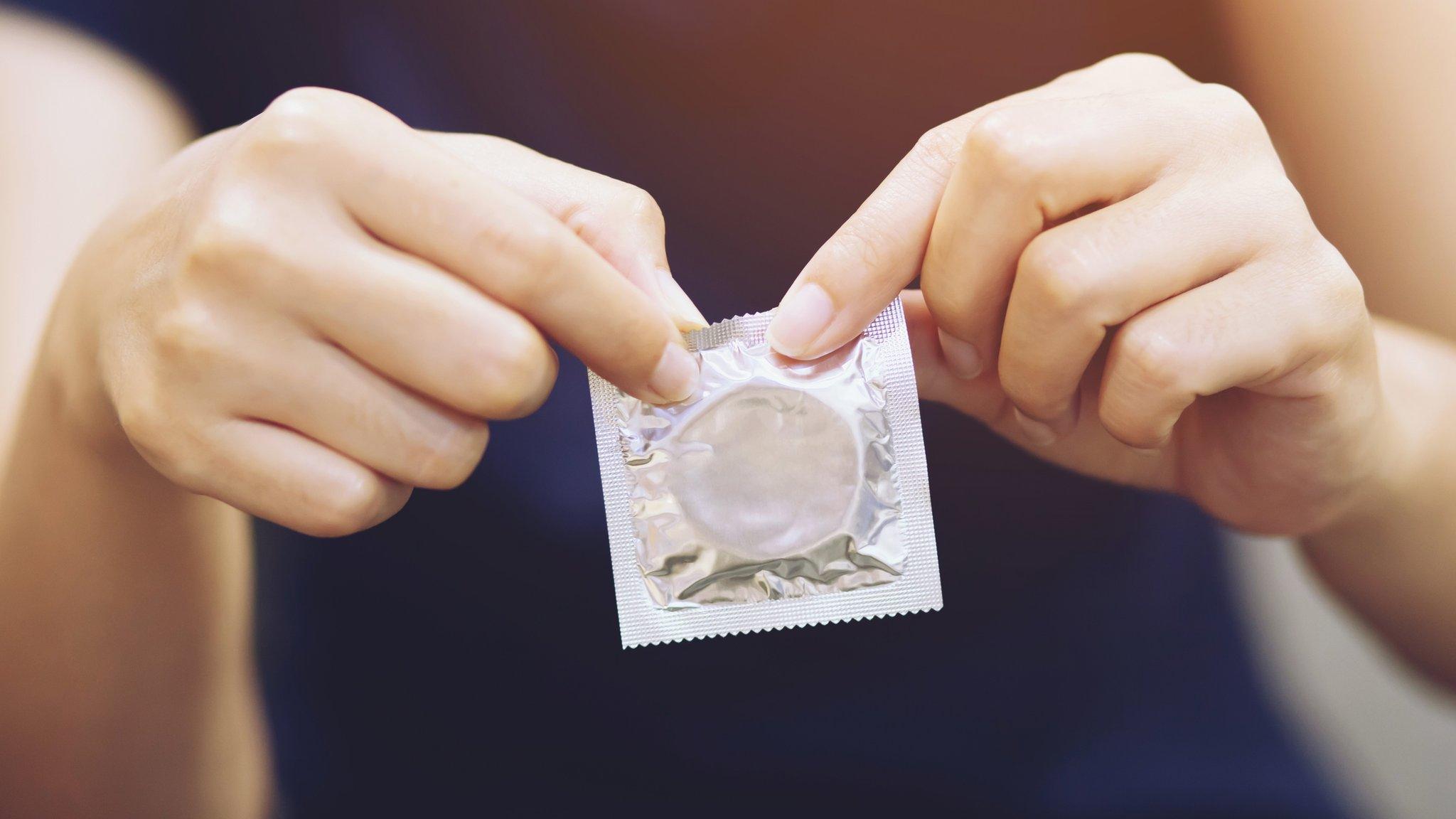Warning after rise in gonorrhoea and syphilis

The UK Health Security Agency South West is advising young people and students to use condoms
- Published
Health officials have urged young people returning to university to use a condom when having sex with new or casual partners.
The UK Health Security Agency South West - which covers Devon, Cornwall, Somerset, Gloucestershire, Wiltshire and Dorset - said cases of gonorrhoea and syphilis had risen among people aged 15 to 24.
It said the most recent data showed there had been 51 cases of syphilis in 2023 (a rise of 24% in 2022) and 2,403 cases of gonorrhoea (a rise of 24.4% over the same period).
The agency said a drop in cases of chlamydia, herpes, genital warts had contributed to an overall decrease in sexually transmitted infections (STIs).
However, the agency warned cases "remain high and young people are urged not to be complacent".
The data for other STIs showed:
9,476 cases of chlamydia in 2023 (a decrease of 6.8% in 2022)
827 cases of herpes (a decrease of 10%)
420 cases of genital warts (a decrease of 27.7%)
Regular testing
Health officials reminded people STIs could spread easily and those aged 15 to 24 are especially at risk as they were more likely to have frequent partner changes.
Mark McNally, the agency's sexual health facilitator for the South West, said: "If you're having sex with someone new, or someone more casually, don't forget to use a condom.
"With higher STI rates in young people, having sex without a condom can increase your chances of an infection like, chlamydia or gonorrhoea.
"Getting tested regularly will also help detect any infections quickly and protect your own and your partners health."
Follow BBC Cornwall on X (formerly Twitter), external, Facebook, external and Instagram, external. Follow BBC Devon on X (formerly Twitter), external, Facebook, external and Instagram, external. Send your story ideas to spotlight@bbc.co.uk, external.
- Published6 February 2024

- Published30 March 2023
